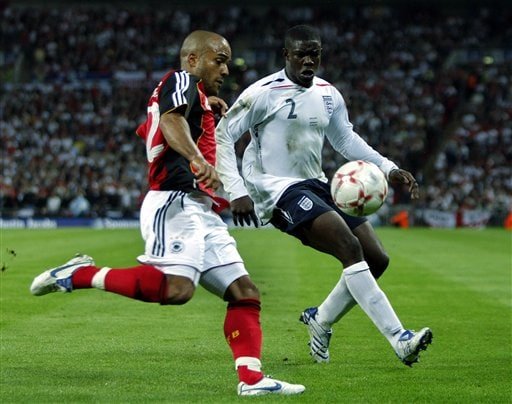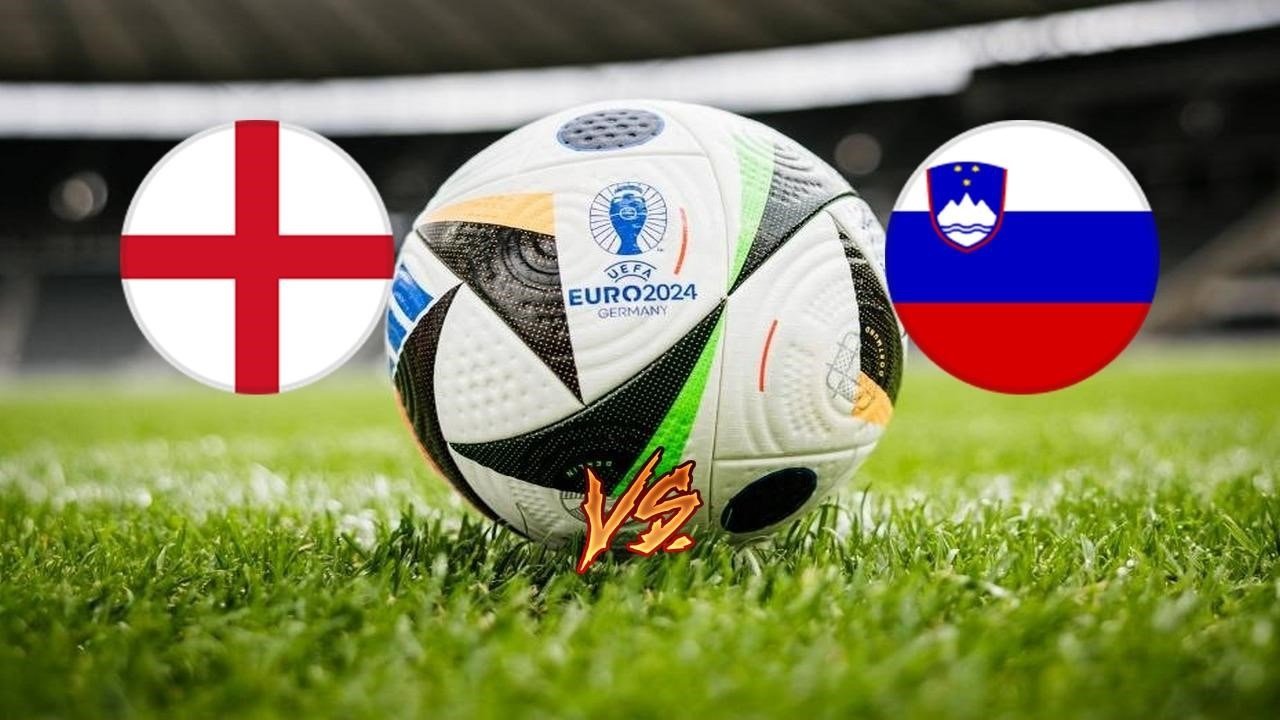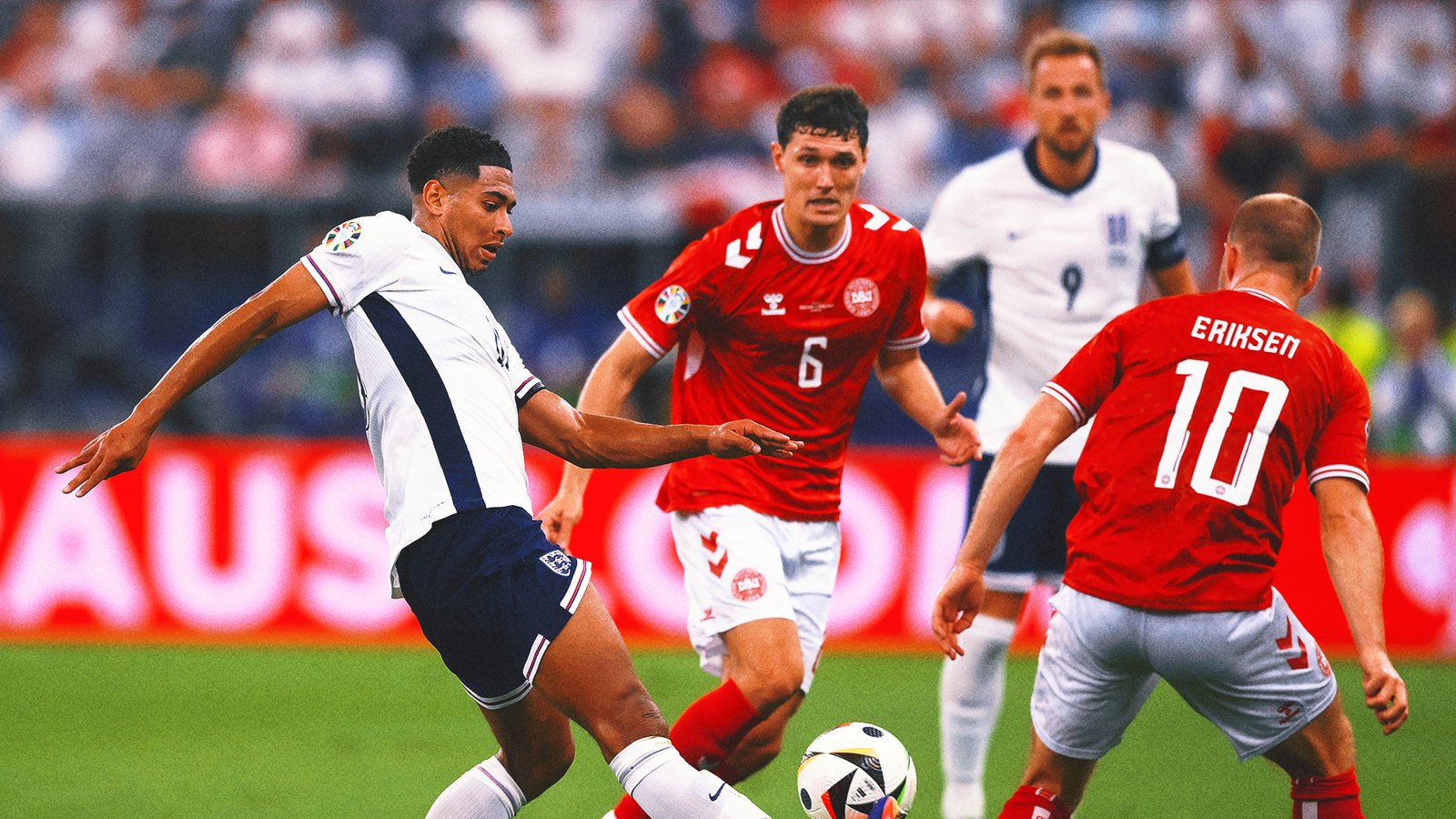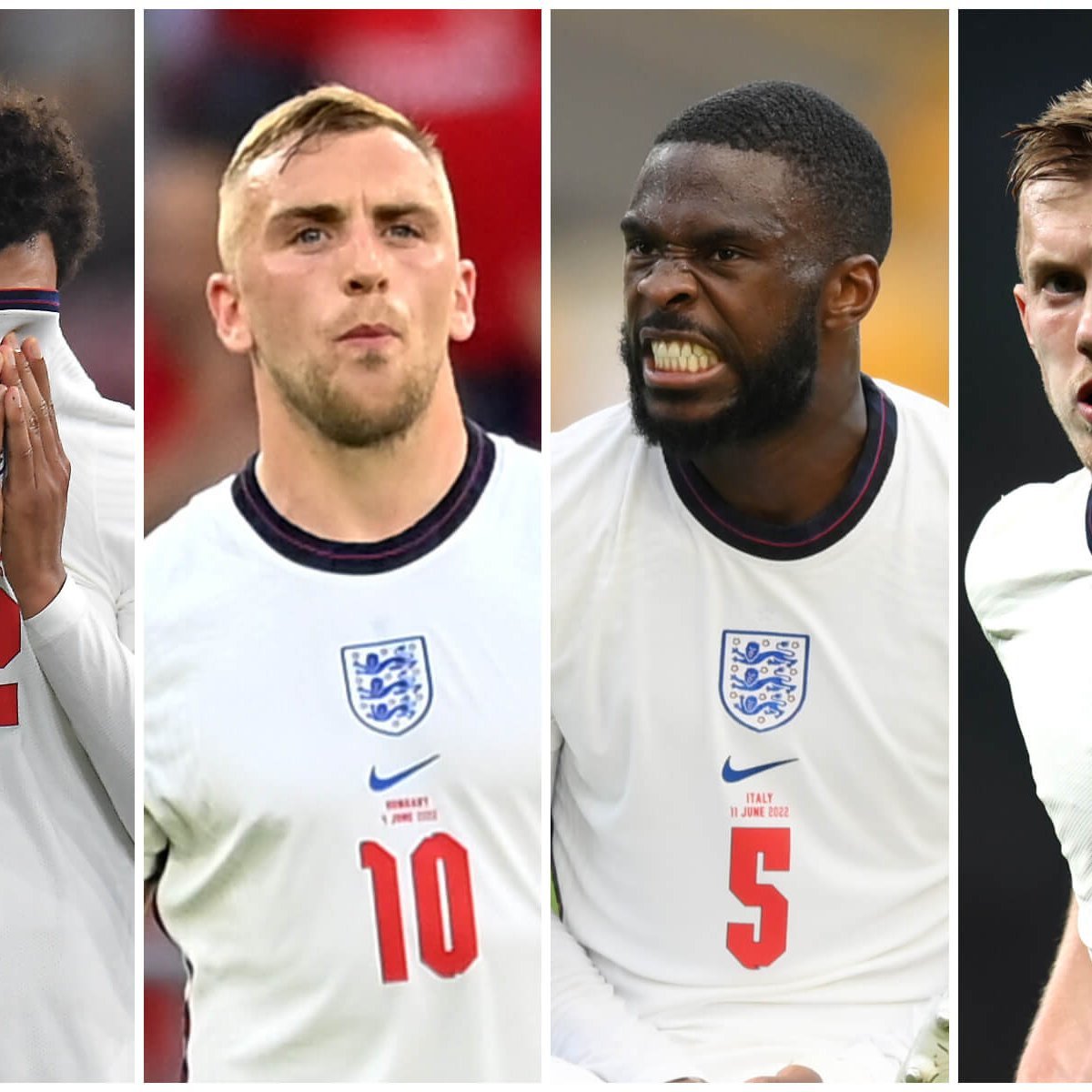The clash between England and Germany in international football is more than just a game; it’s a storied rivalry steeped in history, passion, and national pride. As these two footballing giants prepare to potentially meet in the knockout stages of Euro 2024, the anticipation and excitement are palpable. This encounter represents not only a battle for tournament progression but also a continuation of a long-standing rivalry that has captivated fans for generations.
Tactical Battleground: Analyzing England vs Germany’s Playing Styles

England’s Tactical Evolution Under Southgate
Gareth Southgate has transformed England’s tactical approach since taking the helm. Gone are the days of rigid 4-4-2 formations and direct play. Instead, England now employs a more flexible system, often utilizing a 3-4-3 or 4-3-3 formation. This evolution has allowed for greater control in midfield and more fluid attacking play.
Southgate’s England prioritizes:
- Possession-based football
- Quick transitions from defense to attack
- Utilization of attacking full-backs
- Pressing high up the pitch
The Three Lions have shown an ability to adapt their tactics based on the opposition, sometimes reverting to a more defensive setup against stronger teams.
Germany’s Tactical Renaissance
Germany, under new management, is undergoing a tactical renaissance. After a disappointing showing in recent tournaments, the team is looking to recapture the fluid, attacking football that made them world champions in 2014.
Key elements of Germany’s current tactical approach include:
- A focus on ball circulation and possession
- Aggressive pressing to win back possession quickly
- Utilization of technically gifted midfielders
- Emphasis on positional fluidity in attack
The German side has been experimenting with both a back three and back four, showing tactical flexibility that could prove crucial in tournament football.
Potential Tactical Matchups
The tactical battle between England and Germany could hinge on several key factors:
- Midfield control: Both teams boast strong midfield units. England’s combination of defensive solidity and creative flair will be pitted against Germany’s technical proficiency and pressing ability.
- Wide areas: The use of wing-backs or attacking full-backs by both teams could lead to fascinating battles on the flanks, with these areas potentially becoming crucial in determining the outcome.
- Pressing intensity: Both sides employ pressing tactics, but the effectiveness and timing of these presses could be a deciding factor.
- Set-piece strategies: In tight games, set-pieces often prove decisive. Both teams have shown prowess in this area, making it a potential game-changer.
The tactical chess match between Southgate and his German counterpart will be fascinating to observe, with in-game adjustments likely playing a crucial role.
Key Players to Watch: Stars That Could Decide the Outcome

England’s Potential Game-Changers
Harry Kane: The Goalscoring Talisman
Harry Kane remains England’s most potent attacking threat. His ability to drop deep and link play, combined with his clinical finishing, makes him a constant danger. Kane’s performance could be pivotal in determining England’s success.
| Statistic | Value |
|---|---|
| International Goals | 62 |
| Assists | 18 |
| Appearances | 87 |
Jude Bellingham: The Midfield Maestro
At just 20 years old, Jude Bellingham has established himself as one of the world’s premier midfielders. His box-to-box ability, technical skills, and maturity beyond his years make him a key figure in England’s midfield.
Phil Foden: The Creative Spark
Phil Foden’s creativity and dribbling ability provide England with a different dimension in attack. His ability to find space and create chances could be crucial in breaking down a disciplined German defense.
Germany’s Key Performers
Jamal Musiala: The Rising Star
Jamal Musiala, formerly of England’s youth setup, has become a central figure in Germany’s attack. His close control, vision, and goal-scoring ability make him a constant threat.
Joshua Kimmich: The Midfield General
Joshua Kimmich’s versatility and leadership are vital to Germany’s play. Whether operating as a defensive midfielder or right-back, his passing range and tactical intelligence are crucial to Germany’s success.
Kai Havertz: The Versatile Attacker
Kai Havertz’s ability to play across the front line gives Germany tactical flexibility. His movement and finishing ability make him a dangerous prospect for any defense.
Head-to-Head Battles to Watch
- Kane vs. German Center-Backs: How Germany’s defense handles Kane’s movement and finishing will be crucial.
- Bellingham vs. Kimmich: The midfield battle between these two could determine which team controls the tempo of the game.
- England’s Full-Backs vs. Germany’s Wingers: The outcome of these wide battles could have a significant impact on the match’s flow.
Historical Encounters: Recalling Memorable Matches and Moments

The 1966 World Cup Final: England’s Crowning Glory
The 1966 World Cup Final remains England’s greatest footballing achievement. Hosted at Wembley Stadium, England secured a 4-2 victory over West Germany after extra time. The match is etched in footballing lore, remembered for Geoff Hurst’s controversial third goal and his subsequent hat-trick.
Key moments:
- Hurst’s ghost goal may or may not have crossed the line
- The iconic commentary: think it’s all over… it is now!
- Bobby Moore lifting the Jules Rimet trophy
This victory has long been a source of pride for England fans and a point of contention for Germans.
The 1990 World Cup Semi-Final: Penalty Heartbreak for England
The 1990 World Cup semi-final in Turin saw England suffer a crushing defeat on penalties. After a 1-1 draw in regular time, the match went to a shootout where Stuart Pearce and Chris Waddle missed their spot-kicks, sending West Germany through to the final.
This match is remembered for:
- Paul Gascoigne’s tears after receiving a yellow card that would have ruled him out of the final
- Gary Lineker’s equalizer that forced extra time
- The beginning of England’s penalty shootout curse in major tournaments
Euro 96: Football Comes Home, But Germany Prevails
Hosted in England, Euro 96 saw another dramatic encounter between the two nations in the semi-final. After a 1-1 draw, the match once again went to penalties. Current England manager Gareth Southgate missed the decisive penalty, giving Germany victory and a place in the final.
Memorable moments include:
- Alan Shearer’s early goal for England
- Stefan Kuntz’s equalizer
- The heartbreak of another penalty shootout loss for England
The 2010 World Cup: Lampard’s Ghost Goal
In the round of 16 at the 2010 World Cup, controversy struck again. Frank Lampard’s shot clearly crossed the line but was not given as a goal. Germany went on to win 4-1, but the incident reignited debates about goal-line technology.
Recent Encounters: Shifting Fortunes
Recent matches between the two sides have seen a shift in fortunes:
- Euro 2020: England secured a 2-0 victory in the round of 16, exorcising some demons of past defeats
- Nations League 2020-21: A 2-0 win for England at Wembley
These recent successes have given England fans renewed hope in encounters against their old rivals.
The Pressure Cooker: Expectations and Fan Sentiment Heading into the Match

England’s Quest for Glory
The Weight of History
England enters Euro 2024 carrying the weight of expectations heightened by their recent successes. The team’s run to the final of Euro 2020 and the semi-finals of the 2018 World Cup have raised hopes that this generation of players can end the long wait for a major trophy.
Fans and media alike are putting immense pressure on the team to deliver, with many seeing this tournament as a golden opportunity to secure silverware. The potential clash with Germany is viewed not just as a chance for progression, but as an opportunity to vanquish old demons.
The Southgate Factor
Gareth Southgate’s leadership has been crucial in changing the narrative around the England team. His calm demeanor and tactical acumen have won over many doubters, but there remains a vocal segment of fans and pundits who question his in-game management and team selections.
A victory over Germany would go a long way in silencing any remaining critics and cementing Southgate’s legacy as one of England’s most successful managers.
The Golden Generation 2.0
This England squad is often referred to as a new drawing comparisons to the talented but ultimately unsuccessful teams of the early 2000s. Players like Kane, Bellingham, and Foden are seen as world-class talents capable of competing with the best.
The pressure on these players to succeed where their predecessors failed is immense, with fans hoping this generation can translate their individual talents into collective success on the international stage.
Germany’s Redemption Mission
Rebuilding After Recent Disappointments
Germany enters Euro 2024 on something of a redemption mission. Recent tournaments have seen the team underperform, with group stage exits in the 2018 World Cup and Euro 2020 particularly painful for a nation accustomed to success.
There’s a sense that German football is in transition, with a new generation of players taking center stage. Fans are cautiously optimistic but also wary of setting expectations too high given recent disappointments.
Home Advantage
As hosts of Euro 2024, Germany will have the advantage of playing on home soil. This brings both benefits and pressures:
- Strong home support
- Familiar surroundings and conditions
- The weight of expectation from home fans
The German team will be keen to use this home advantage to fuel a successful tournament run, with the match against England potentially serving as a springboard for greater things.
The Legacy of Past Victories
Germany’s past successes against England, particularly in major tournaments, provide a psychological edge. The team and fans can draw on memories of triumphs in 1990 and 1996 for inspiration and confidence.
However, this legacy also brings pressure. There’s an expectation among German fans that their team should have the upper hand in this fixture, making any potential defeat harder to swallow.
Media Frenzy and Public Perception
Tabloid Headlines and National Fervor
In both countries, but particularly in England, the tabloid media plays a significant role in shaping public perception. Headlines often invoke wartime rhetoric or historical rivalries, adding an extra layer of intensity to the fixture.
This media coverage can create a feverish atmosphere around the match, potentially affecting player mindsets and increasing the pressure on both teams to perform.
Social Media’s Impact
The rise of social media has added a new dimension to the rivalry. Players face instant reaction to their performances, both positive and negative, which can impact morale and mental preparation.
Fans from both nations engage in online banter and debate, often fueling the rivalry further and creating additional pressure on the teams to deliver for their supporters.
The Broader Context of the Tournament
Path to Glory
For both teams, this match is seen as a potential turning point in the tournament. Victory could provide the momentum needed for a deep run, while defeat would be a significant setback to their ambitions.
Fans and players alike are acutely aware of the importance of this fixture in the context of their overall tournament aspirations, adding an extra layer of tension to an already high-stakes encounter.
Beyond the Pitch: Cultural and Societal Implications of the Rivalry

Historical Context: More Than Just Football
Post-War Relations and Reconciliation
The England-Germany football rivalry is inextricably linked to the broader historical context of the two nations’ relationship. In the aftermath of World War II, football matches between England and Germany took on additional significance as a peaceful arena for national competition.
These encounters have played a role in the process of reconciliation and normalization of relations between the two countries. Over the years, the rivalry has evolved from one tinged with post-war animosity to a more sporting competition, reflecting the improving diplomatic ties between the nations.
Cultural Exchanges Through Football
Football has served as a cultural bridge between England and Germany. The rivalry has fostered:
- Increased interest in each other’s domestic leagues
- Player transfers between English and German clubs
- Sharing of coaching philosophies and tactical approaches
This cross-pollination has enriched the footballing cultures of both nations and contributed to the development of the sport in Europe.
Media Portrayal and National Stereotypes
Evolving Narratives in Press Coverage
The media’s portrayal of the England-Germany rivalry has undergone significant changes over the decades. Early coverage often relied on wartime imagery and nationalistic rhetoric. However, more recent reporting has generally moved towards a more nuanced and respectful tone.
This shift reflects broader societal changes and a growing awareness of the need for responsible journalism. Nevertheless, some elements of the media in both countries still occasionally resort to stereotypes and sensationalism when covering these matches.
Challenging and Reinforcing Stereotypes
The rivalry both challenges and reinforces national stereotypes:
- German efficiency vs. English passion
- Tactical discipline vs. individual flair
- Penalty shootout prowess vs. bottling under pressure
While these stereotypes are often overly simplistic, they persist in public discourse and can influence how fans and even players approach the matches.
Economic Impact and Tourism
Boost to Local Economies
Major tournaments and high-profile matches between England and Germany can have significant economic impacts:
- Increased tourism in host cities
- Boost in sales for hospitality and retail sectors
- Spike in TV viewership and associated advertising revenue
The potential England-Germany clash at Euro 2024 is expected to be one of the most-watched and economically impactful games of the tournament.
Football Diplomacy and International Relations
Soft Power and National Branding
Success in these high-profile encounters can enhance a nation’s soft power and international standing. Both England and Germany use football as part of their national branding efforts, with success on the pitch often translating to increased global influence and positive perception.
Diplomatic Opportunities
Major football tournaments, including potential England-Germany clashes, often provide opportunities for diplomatic engagement:
- Meetings between political leaders at matches
- Cultural exchange programs organized around the events
- Joint initiatives to promote values like fair play and anti-discrimination
Social Cohesion and National Identity
Unifying Force
In both countries, the national football team serves as a unifying force, bringing together people from diverse backgrounds. The shared experience of supporting the team, especially in high-stakes matches against historic rivals, can foster a sense of national unity and pride.
Reflecting Societal Changes
The composition and ethos of the national teams often reflect broader societal changes:
- Increased diversity in team makeup
- Evolving attitudes towards nationalism and patriotism
- Changing perceptions of national identity in a globalized world
The England-Germany rivalry, and how it is perceived and celebrated, has evolved to reflect these societal shifts in both countries.
Grassroots Impact and Youth Development
Inspiring the Next Generation
High-profile matches between England and Germany can have a significant impact on grassroots football:
- Increased youth participation in the sport
- Investment in football infrastructure and coaching
- Exchange programs between English and German youth academies
The rivalry serves as inspiration for young players in both countries, driving them to improve and potentially represent their nations in future encounters.
Sharing Best Practices
The close scrutiny of these matches has led to increased sharing of best practices in areas such as:
- Youth development systems
- Coaching methodologies
- Use of technology in training and performance analysis
This exchange of ideas has contributed to the overall development of football in both countries.
Evolving Fan Culture
From Hooliganism to Family-Friendly Atmosphere
The fan culture surrounding England-Germany matches has undergone a significant transformation. Historical issues with hooliganism have largely given way to a more family-friendly atmosphere, reflecting broader societal changes and concerted efforts by football authorities.
Digital Age Fandom
The rise of social media and digital platforms has changed how fans engage with the rivalry:
- Real-time global conversations during matches
- Fan-created content and memes
- Virtual communities of supporters
This digital dimension has added new layers to the rivalry, extending its reach and impact beyond the 90 minutes on the pitch.
Video
Conclusion
The England-Germany football rivalry transcends the boundaries of sport, embodying a rich tapestry of historical, cultural, and societal significance. As these two footballing giants potentially prepare to face each other at Euro 2024, the encounter represents more than just a battle for tournament progression. It is a continuation of a storied rivalry that has captivated fans for generations and played a role in shaping the relationship between two of Europe’s most influential nations.
From the tactical chess match on the pitch to the fervent anticipation of millions of fans, from the weight of historical encounters to the broader cultural implications, this fixture encapsulates the essence of international football. It serves as a reminder of the sport’s power to unite, divide, and ultimately bring people together in shared passion and respect.
As we look forward to this potential clash, it’s clear that regardless of the outcome, the England-Germany rivalry will continue to evolve, reflecting the changing dynamics of both nations and the global football landscape. This encounter, should it materialize, will not only add another chapter to this storied rivalry but also contribute to the ongoing narrative of European football, national identity, and international relations.
In the end, while the result will be celebrated by one side and lamented by the other, the true value of this rivalry lies in its ability to showcase the best of football –

